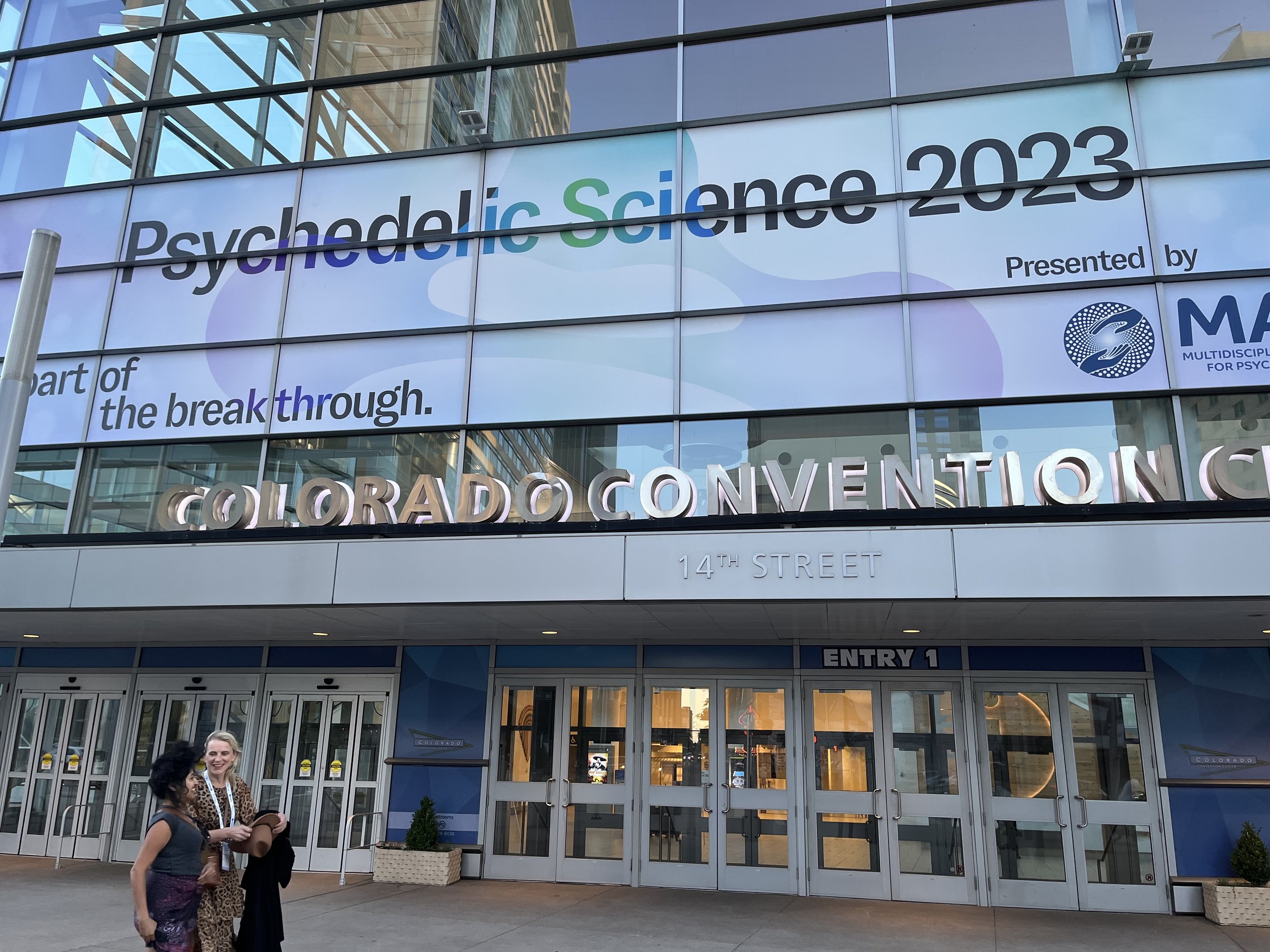A dispatch from Psychedelic Science 2023
Historic is a word much overused in journalism, so we’ll leave it to others to say whether Psychedelic Science 2023 will be long remembered. But the gathering staged last week in Denver by the nonprofit Multidisciplinary Association for Psychedelic Science (MAPS) certainly felt momentous: It showcased the size, strength and diversity of the fast-growing movement to bring psychedelics into mainstream America.
Some 12,000 people — 12,000 people! — converged on the Colorado Convention Center. They were scientists, physicians, therapists, activists, investors, entrepreneurs, philanthropists and, yes, psychonauts who toured an exhibit hall where vendors sold books, T-shirts and grow-kits allowing anyone to propagate psilocybin mushrooms at home. They endured long days of panels and PowerPoints and enjoyed long nights of partying and partaking in mind-altering chemicals.
The conference offered plenty of serious conversation but a playful and mildly subversive vibe was never far from the surface. Carl Hart, a drug-reform activist, a heroine user and tenured professor of psychology at Columbia, warned that he might not be his best self as he took the stage for a 9:45 a.m. interview. “I don’t usually see the day before noon,” he noted.
Support for psychedelics came from politicians, notably Jared Polis, Colorado’s Democratic governor and Rick Perry, the former Texas governor, a Republican. Other bold-faced names — NFL all-star quarterback Aaron Rodgers, singer Melissa Etheridge and best-selling author Andrew Weil — testified to the benefits of these mind-expanding drugs.
Others described the many paths by which psychedelics are becoming more available to more people in more places than ever. Plans for so-called psychedelic service centers in Oregon and Colorado, whose voters have decriminalized plant medicines, are well underway; before long, anyone over 21 in those states will be able to experience the magic of psilocybin mushrooms, in a regulated environment. Elsewhere, a growing number of churches provide psychedelics as sacraments; they’re protected, more or less, by laws guaranteeing religious liberty. Underground markets appear to be flourishing, and retreat centers are springing up in Jamaica and Costa Rica. Nonprofit groups like the Heroic Hearts Project take combat veterans to Costa Rica or Peru for treatments.
Perhaps most important, MAPS’s drug-development unit, called the MAPS Public Benefit Corporation, expects to get FDA approval next year for its plan to treat PTSD with a combination of therapy and MDMA, or ecstasy.
It’s no wonder that MAPS founder and president Rick Doblin savored the moment as conferees packed into the 5,000-seat Bellco Theatre for the event’s opening plenary.
“I can only wonder, am I tripping?” asked Doblin. Pause. “It’s not that I’m tripping, the culture is tipping.”
With more than 500 sessions, the conference sprawled every which way. Sample titles: “90 Years of Tryptamine Chemistry.” “Can modern psychedelic medicine take lessons from the plant medicine traditions?” “Assessing the evidence for microdosing.” “Decolonization and the psychedelic renaissance.”
Not surprisingly, “Sex, Money, Death and Psychedelics” drew a standing room only crowd.
Lucid News provided extensive coverage, with reports here, here, here and here. Below, I’ve pulled excerpts from my contributions and added a few observations.
—
You can read the rest of this story here on Medium.
